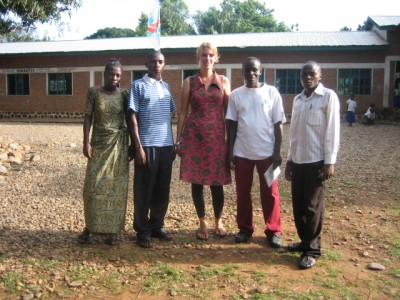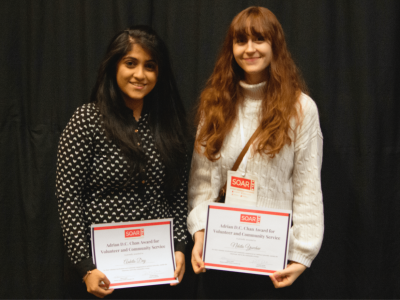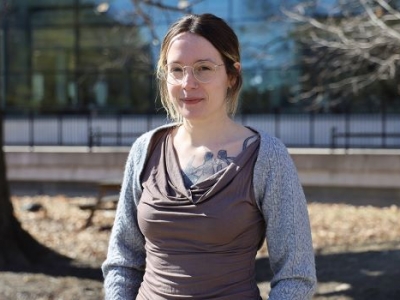
In areas of the South Kivu province of the Democratic Republic of Congo (DRC), disputes are often settled using a justice process called “Baraza”.
Holly Dunn, a master’s student in political science at Carleton, decided to find out more about how this form of local conflict mediation works.
She packed her bags and headed to Africa.
So far, Dunn has found that, while many people perceive the state justice system to be corrupt, they think that local initiatives such as Baraza are trustworthy. She also found that the state system is inaccessible for many people due to cost, distance and familiarity with the process whereas Baraza is considered more accessible. It is also important because it allows women and younger individuals who have a solid reputation in the community to act as mediators.
In conflicts involving gender issues, Dunn says Baraza tends to reflect social mores.
“For example, in one dispute, a woman was encouraged to stay with her abusive husband,” shares Dunn. “Baraza mediators tried to encourage the husband to be fair and treat her respectfully. However, after a couple of weeks, the abuse resurfaced. But had this participant been advised to leave her husband, she would have forfeited her rights to their home, their land, their children or their belongings. There would also be a possibility that she would have nowhere to live if her natal family refused to allow her to return to them.”
Dunn says that the people she interviewed stated that reconciliation is another important factor in Baraza.
Says Dunn: “Participants did not want their neighbours going to jail or being severely punished; they wanted love, friendship and trust restored. Mediators sometimes suggested a type of ‘punishment,’ for example, when one disputant’s goat damaged a neighbour’s field, the owner of the goat was told to help the other replant the crop. However, these types of ‘punishments’ are restorative in nature and, once completed, forgiveness and reconciliation are more easily accomplished.”
In Baraza, all sides to a conflict get to speak on their own behalf. “As well, in almost all cases, the disputants were satisfied with the mediators’ recommendations and their relationship with the other party had been restored, or if there was no previous relationship, anger and hostility did not linger after reconciliation,” says Dunn.
Dunn’s thesis is supervised by Drs. Augustine Park and James Milner. Says Dunn: “Dr. Park has challenged me to critically engage with the existing research, as well as the themes and concepts that have emerged throughout my own research. She has encouraged me to develop and include my own ideas, theories and analyses, and not be limited by what the ‘experts’ have already written. Dr. Milner has helped me develop a strong research problem and questions that strategically engage with the existing debates. He has been understanding of the interdisciplinary nature of my research and has provided unique and thoughtful insight.”
Dunn says that The Institute of African Studies and its director, Dr. Blair Rutherford, have helped her find job opportunities and occasions to present her research. “With the new master’s program, future Carleton students will have the privilege of being able to specialize in African Studies. This is a unique program that I think will be very popular and wish it had existed when I started my MA.” More information about the new collaborative master’s program in African Studies is available at this website.
Dunn hopes to do a PhD and continue her research.
Tuesday, October 9, 2012 in Grad Student Research, News
Share: Twitter, Facebook




